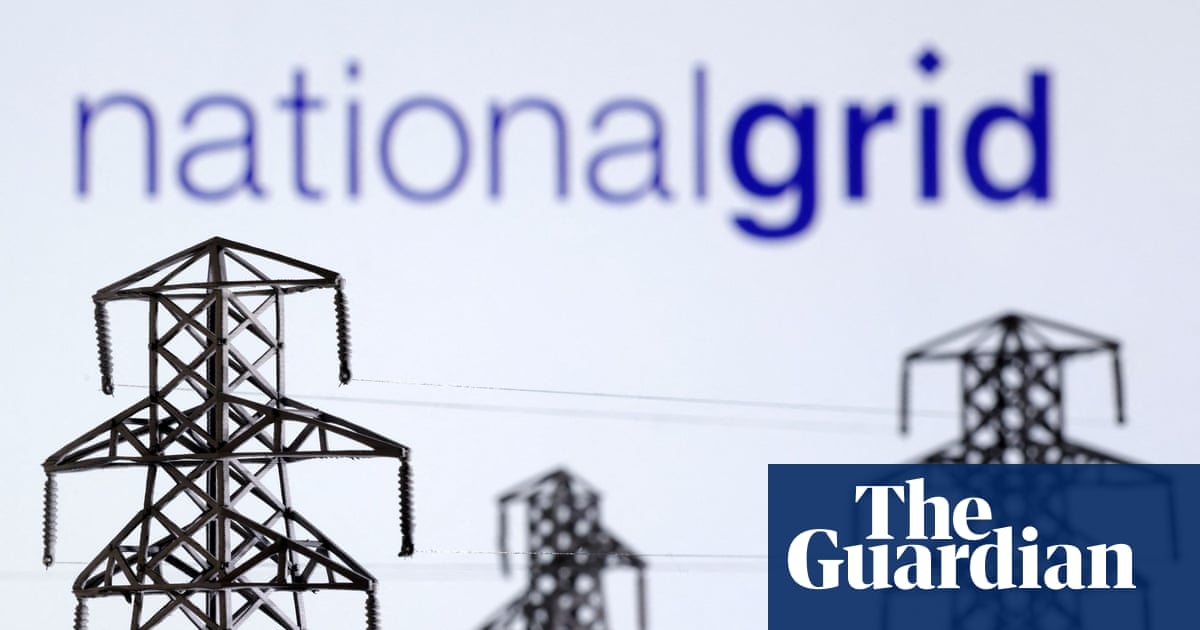
Ministers have been urged to intervene if the Australian banking powerhouse Macquarie pushes the button on a mooted £3bn deal to take full control of a vital part of the UK’s gas grid.
A consortium made up of Macquarie Asset Management and British Columbia Investment Management Corporation completed the acquisition of 60% of the equity in National Grid’s gas transmission and meter business in January, in a deal which valued the business at £7.5bn.
The Guardian understands that a clause in that deal allows the consortium first refusal to snap up the remaining 40% from this summer.
The transmission business operates more than 4,000 miles of gas pipes in the UK.
If the consortium exercises the call option, it may prompt concerns over the future of a crucial piece of UK infrastructure as officials attempt to rebalance the nation’s energy system towards low-carbon technologies.
Macquarie owns a string of UK infrastructure assets including the gas network Cadent, Glasgow and Southampton airports, and several windfarm projects along the east and north-west coasts of England.
It has a chequered reputation in the UK, however, over its ownership of Thames Water, where it faced political scrutiny for extracting billions in dividends while its debt soared, and Southern Water, the utility company criticised for repeatedly discharging sewage into the sea.
Gary Carter, the GMB union’s national officer, said: “Massive investment is going to be needed to reach net zero and secure the UK’s energy supply for future generations.
“Can Macquarie really be trusted with whole ownership of owning the nation’s gas transmission business?
“Macquarie’s reputation is one of maximising profits and stripping assets, often at the expense of investment as well as employees, pay and pensions.
“This government must not sit idly by when energy security is at stake.”
The original 60% investment, agreed in March 2022, was scrutinised under the National Security and Investment Act, which is designed to examine whether any acquisition would put Britain at risk.
Any further deal could also be examined under the act, which was introduced in 2021.
The Competition and Markets Authority looked into the consortium’s initial investment because of its ownership of Cadent, but it did not find the deal would weaken competition. It may, however, choose to scrutinise any further investment.
National Grid, the £42bn private company which runs Britain’s energy network, is in the process of rebalancing its assets away from fossil fuels.
During a recent interview with the Guardian, its chief executive, John Pettigrew, declined to comment on whether the consortium would exercise its option to buy the remaining equity.
Asked whether he’d had any qualms over the original sale given Macquarie’s reputation, he said: “There’s a process that the government goes through with any acquisition to ensure that the potential buyers are appropriate. That process was followed. Macquarie has bought gas [assets] in the past and have always been, as far as I can see, a very reputable operator of those assets.
“There’s a government process for the appropriateness of buyers, which we followed.”
Earlier this month Macquarie recorded an annual net profit of A$5.18bn (£2.8bn), up 10% on the previous year.
Macquarie declined to comment.












